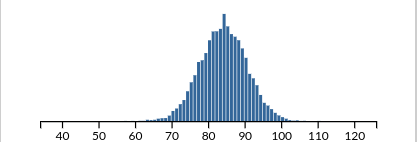UMP: The Untitled McDongenhagen Project, Episode 15
This is the 15th episode of a sorta weekly program co-hosted by Eric Longenhagen and Kiley McDaniel about player evaluation in all its forms. The show, which is available through the normal FanGraphs Audio feed, has a working name but barely. The show is not all prospect stuff, but there is plenty of that, as the hosts are Prospect Men.
This episode is the first, and possibly only, Important Episode, focusing on news of a potential international draft, as reported by our guest, ESPN’s Jeff Passan. Please support him by purchasing any Elmo products, authentic or knock-off.
0:20 – Jeff outright rejects the intro
1:22 – Kiley tries again, leaning into Jeff’s unlikability
2:09 – Jeff breaks down the news as he’s reported it
2:33 – Jeff is under attack in his own car and makes metaphorical lemonade
4:15 – They touch on the human issue of how the pro players who are discarded by clubs in developing countries are handled
6:20 – The soon-to-be-best-prospect-in-baseball instance of Wander Franco and his experience in this system
8:42 – Comparing the typical Latin prospect to a typical suburban American one, and where the MLB Players’ Association and MLB come in
11:10 – MLB’s morally-driven approach to human trafficking re: Cuba could impact how the international draft is put together
12:50 – The MLBPA’s response to Jeff’s report and does a point the MLBPA makes suggest MLB planned this whole progression out years in advance?
15:40 – Is this just step one of a few for MLB? How did the MLBPA allow us to get here?
17:50 – Why don’t the international pools track the draft pools? How close should they be?
20:45 – How to use hard slotting to solve some problems and then transition into making July 2nd into a TV event and a pilot program for doing it with the domestic draft.
24:35 – Where does this go next? What’s the timetable for making the change? Can Jeff really learn Spanish?
25:40 – Elmo makes an appearance?
26:55 – Jeff details how anti-social he is on planes and how this prepares him to be a general manager
29:30 – Eric joins the podcast for the second segment and answers Kiley’s burning question
31:00 – Eric and Kiley break down the international draft possibilities for each stakeholder, starting with the 5-10 most efficient MLB clubs in Latin America. Kiley broke down earlier this year what the ROI is on an international dollar spent and is it big.
33:30 – They break down the bottom tier of clubs, with less infrastructure and with smaller staffing budgets
36:00 – The big unanswered question: how much will MLB assert themselves in controlling the scouting environment?
40:45 – The MLB Players Association’s role in negotiations. Kiley mentioned in this year’s July 2nd preview that clubs can get steroid tests on prospects as young as age 13, which can’t possibly be the status quo for long.
42:13 – The next stakeholders: the kids that are signing an international amateurs
46:30 – What happens to a 17 year old who opted not to sign as a 16 year old? How would the structure of the draft affect this? Would it lead to trading of picks? A TV event?
51:25 – In fairness, this would also be great for us
52:27 – MLB’s role and motivations in improving this situation. Here’s the first time Kiley wrote about MLB likely using the overage money to help institute a draft.
58:30 – Eric’s experience watching fringe international prospects get released from a complex
59:55 – Could this indirectly affect the amount of minor league teams?
1:02:15 – The humanitarian element, particularly in Venezuela
1:04:00 – The last major stakeholder: the buscones
1:07:00 – The least important stakeholder: Kiley and Eric
Don’t hesitate to direct pod-related correspondence to @kileymcd or @longenhagen on Twitter or at prospects@fangraphs.com.
You can subscribe to the podcast via iTunes or other feeder things.
Audio after the jump. (Approximately 1 hour 12 min play time.)
Read the rest of this entry »
Podcast: Play in new window | Download
Subscribe:



 Dan Szymborski
Dan Szymborski